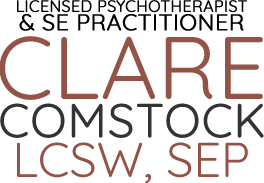Jungian Psychology
Humans are multi-faceted beings with different and often conflicting aspects of our personalities

We humans are multi-faceted beings with different and often conflicting aspects of our personalities that are present simultaneously within us. All societies and cultures support certain human qualities and reject others. Our families growing up taught us, both directly and indirectly, what parts of ourselves were Ok to express and what parts needed to be hidden away. Through these powerful influences we develop an idea of who we are or who we think we should be. This is sometimes called the Ego or Ego Ideal. What doesn’t fit into this Ego Ideal, becomes relegated to the unconscious. That means it is pushed away from our conscious awareness but is not gone.
Then the problems begin. Symptoms emerge. We become depressed, anxious, lose our energy and vitality. We project our disowned qualities onto other people or cultures and label them bad. Anything to keep our shadow at a distance. ‘It’s not me, it’s those people over there.’ This happens at a personal and societal level and we are often totally unaware of the process.
We need these repressed, hidden parts of ourselves. We need the energy that they provide if they are reclaimed. Not to mention that it takes a tremendous amount of effort to keep things repressed Not to mention how destructive unconscious projection is. Robert Bly, in his book, A Little Book on the Human Shadow, talks about “The Long Bag we drag behind us” into which we stuff our unacceptable energies, urges, and qualities. Bly says “We spend our life until twenty deciding what parts of ourself to put into the bag, and we spend the rest of our lives trying to get them out again.”
Dream Work
Dream work uses dreams to explore the unconscious. Dreams speak in images, symbols, and metaphors and, as Jung says, they “give information about the secrets of the inner life and reveal to the dreamer hidden factors of his personality”. It can be useful and powerful to work with dreams as they bypass the biases of the cognitive mind. Dreams often compensate for our conscious attitudes and ideas. They tell us ‘the rest of the story’ of who we are. The images and stories that emerge in dreams tell us about the inner landscape:
- Energies and parts of ourselves needing and wanting expression
- Protective mechanisms in play
- Themes and complexes that are present
- A glimpse of the inner journey we are living.

